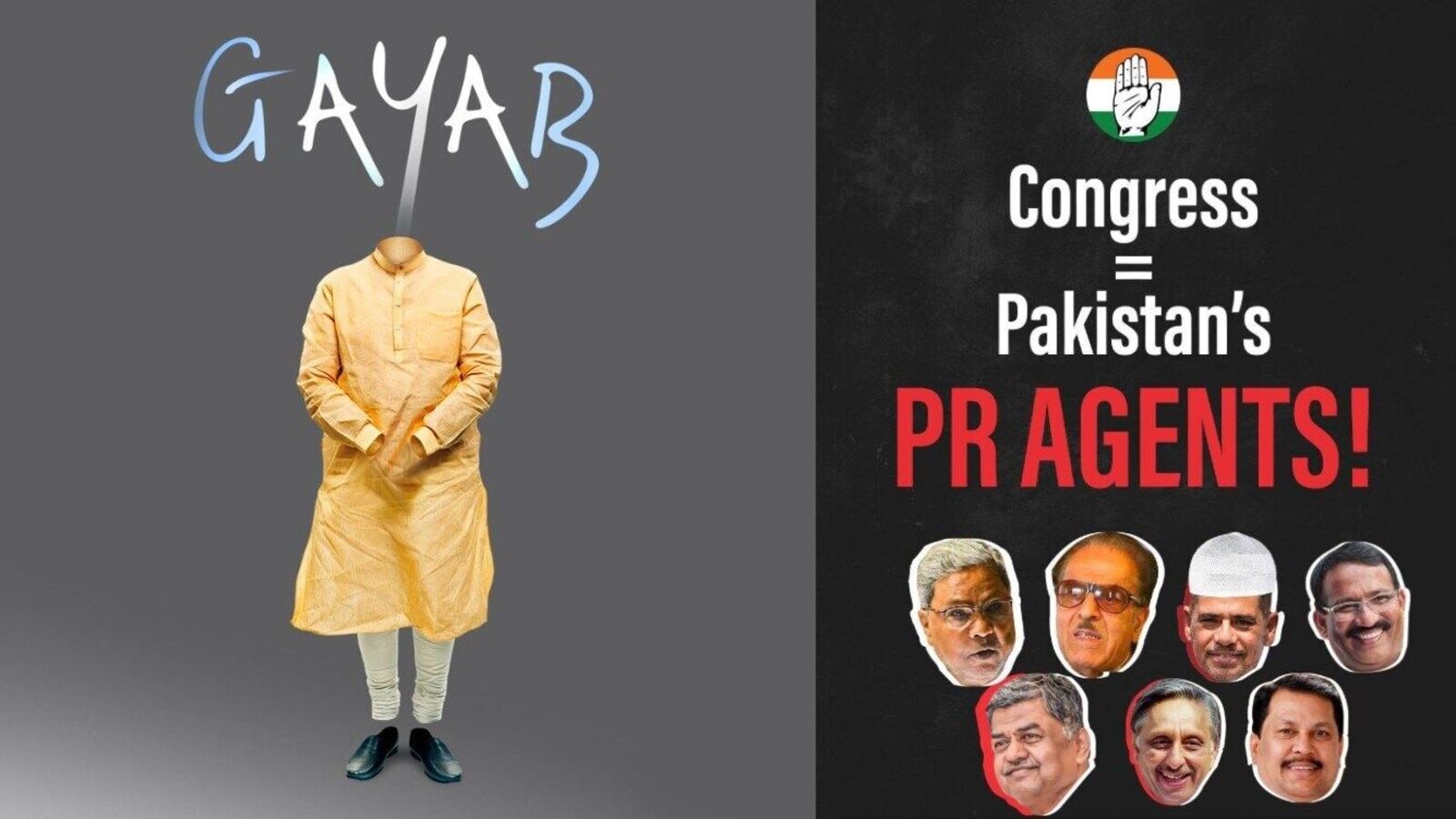‘Gayab’ Sparks Controversy: Congress Poster Provokes BJP Outrage as Netizens Explore Grok

Pahalgam Terror Attack: Political Fallout
Overview of the Incident
The recent terror attack in Pahalgam, Jammu and Kashmir, has led to the tragic loss of 26 lives. This horrific event, which shocked the nation, has spurred a heated exchange between the two main political parties in India—the Congress and the BJP. Following the incident, the Congress party released a provocative poster that has fueled debates and accusations on social media.
Key Features of the Congress Poster
The poster released by Congress features a striking image of a headless figure, which has captured significant attention. The word “gayab” (meaning “missing”) is prominently displayed over this figure. Although the illustration lacks facial features, the figure is dressed in a traditional outfit consisting of a bandhgala kurta, churidar pyjama, and black footwear. The portrayal is intended to convey a powerful message, yet it has sparked considerable controversy and reactions from supporters and opponents alike.
Response from Political Figures
BJP’s Accusations
In response to the poster, Amit Malviya, who oversees the BJP’s Information and Technology department, condemned the Congress party. He labeled the leaders’ actions as reminiscent of “Pakistan’s sleeper cells.” Malviya’s statements included harsh criticisms, suggesting that Congress is ignoring the victims’ families by denying them dignity in death. He emphasized that despite the overwhelming evidence surrounding the attack, Congress seems to be dismissing significant facts.
Additionally, Malviya shared a graphic alleging that “Congress = Pakistan’s PR agents,” further intensifying the blame placed on the Congress party. Another BJP leader, Lakshmi Singh, contributed to the discourse by stating, “Gayab toh Congress and Pakistan hoga bohut jald,” which means “Very soon, Congress and Pakistan will go missing.”
Reactions from Social Media and AI Insights
Use of AI Tools
In the midst of this political clash, many netizens turned to an AI tool named Grok to decipher the Congress message. The query posed to Grok was straightforward: Who does the Congress party mean by ‘Gayab’? The AI’s response provided context to the poster’s intent. It interpreted the imagery as a critique of Prime Minister Narendra Modi, implying that he was absent during the recent crisis. The phrase “At the time of responsibility – Missing” suggested a perceived lack of leadership from the government in responding to the aftermath of the attacks.
However, this provocative use of imagery was met with backlash, as critics viewed it as insensitive, particularly in light of the recent tragedy. The BJP accused Congress of aligning with narratives that echo Pakistan’s perspective, adding another layer to the ongoing political tensions.
Conclusion
The Pahalgam terror attack has ignited a series of accusations and defenses between political rivals. While the Congress aims to hold the government accountable through their controversial poster, the BJP counters with claims of insensitivity and questionable loyalties. This incident underscores the ongoing polarizing political landscape surrounding national security issues in India. The discussions stemming from this event are likely to continue as each party seeks to position themselves in the face of public opinion and responsibility for the violence that occurred.






